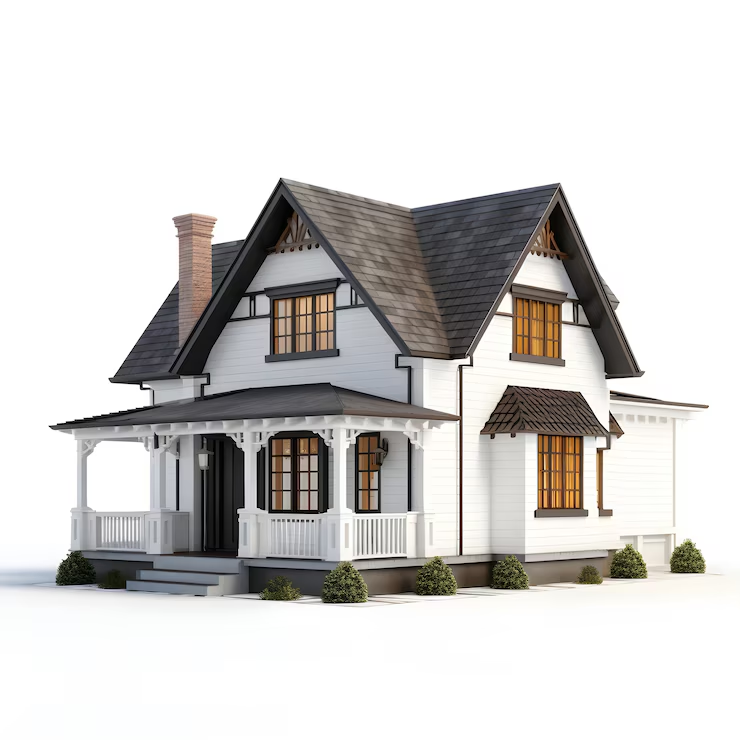How to Buy a Home on a Budget: 100 Essential Tips

How to Buy a Home on a Budget: 100 Essential Tips
Buying a home is one of the most significant investments you’ll make, and managing this process on a budget can be challenging. To help you navigate this journey without breaking the bank, we’ve compiled 100 essential tips for buying a home affordably.
Planning and Research
- Set a Clear Budget: Begin by assessing your income, savings, and expenses to determine how much you can afford.
- Research Housing Markets: Look for areas where home prices align with your budget.
- Get Pre-Approved for a Mortgage: This gives you a clear idea of your price range and strengthens your buying position.
- Understand Different Mortgage Types: Compare fixed-rate, adjustable-rate, and other mortgage options to find what suits you best.
- Use Online Calculators: Estimate monthly payments and total costs with mortgage calculators to avoid surprises.
- Check Your Credit Score: A higher credit score can help secure a better mortgage rate, so make sure it’s in good shape.
- Save for a Down Payment: Aim for at least 20% of the home’s price to avoid private mortgage insurance (PMI).
- Consider First-Time Homebuyer Programs: Look for grants or assistance programs designed for first-time buyers.
- Explore FHA Loans: Federal Housing Administration (FHA) loans often come with lower down payments and credit requirements.
- Research Local Property Taxes: Understanding property taxes will help you budget effectively.
Finding the Right Home
- Choose a Starter Home: Opt for smaller, more affordable properties as a first purchase.
- Consider Foreclosures: Properties that have been foreclosed on can often be purchased below market value.
- Look for Homes Needing Minor Repairs: Properties that need cosmetic fixes can be bought at a discount.
- Check Out Auctions: Homes sold at auction may offer bargain prices.
- Work with a Real Estate Agent: Find an agent who specializes in budget-friendly homes and understands your needs.
- Visit Multiple Properties: Comparing features, prices, and conditions of various homes helps you make a well-informed decision.
- Prioritize Needs vs. Wants: Focus on essential features rather than luxury items.
- Consider the Long-Term Value: Buy in a neighborhood with potential for future value increase.
- Check Home Inspection Reports: Ensure there are no major issues with the home before purchasing.
- Negotiate the Price: Don’t hesitate to make a lower offer and negotiate with the seller.
Financing Your Home
- Shop Around for Mortgage Rates: Compare rates from different lenders to find the best deal.
- Look for No-Closing-Cost Mortgages: Some lenders offer mortgages without closing costs, which can save you money upfront.
- Consider a 15-Year Mortgage: A shorter mortgage term can reduce the total interest paid over time.
- Make Extra Payments: Paying down the principal faster can save you on interest.
- Use a Mortgage Broker: A broker can help you find the best mortgage deal available.
- Check for Mortgage Rate Lock Options: Lock in a mortgage rate during market fluctuations to secure a good deal.
- Consider Adjustable-Rate Mortgages (ARMs): These may offer lower initial rates but come with risks.
- Avoid Buying More House Than You Need: Stick to your budget to avoid financial strain.
- Avoid Private Mortgage Insurance (PMI): Put down at least 20% if possible to avoid this additional cost.
- Look for Government-Backed Loans: VA, USDA, and FHA loans may offer lower rates and more favorable terms.

Saving on Home Costs
- Buy a Home with Lower Energy Costs: Look for energy-efficient homes or consider adding energy-saving improvements.
- Negotiate Repairs and Improvements: Ask the seller to cover or reduce repair costs.
- Shop for Home Insurance: Compare rates and coverage options to find the best insurance plan.
- Consider Home Warranties: They can help with unexpected repairs and maintenance.
- DIY Minor Repairs: Save money by handling small repairs yourself.
- Use Energy-Efficient Appliances: These can lower your utility bills significantly.
- Invest in a Good Home Inspection: A thorough inspection can help you avoid costly surprises.
- Use Smart Home Technology: Smart thermostats and lighting can help save on utilities.
- Refinance Your Mortgage: Refinance to a lower rate if interest rates drop.
- Monitor Homeowner Association (HOA) Fees: Ensure HOA fees fit within your budget and check for any hidden costs
Long-Term Homeownership
- Budget for Maintenance Costs: Set aside money for regular home upkeep to avoid unexpected expenses.
- Improve Home Value Over Time: Invest in upgrades that will increase your home’s value.
- Maintain Good Credit: A good credit score is crucial for refinancing and managing financial needs.
- Keep Up with Property Taxes: Ensure your property taxes are paid on time to avoid penalties.
- Stay Informed About Market Trends: Knowing when to buy or sell can impact your financial decisions.
- Consider Renting Out a Room: Generate extra income by renting out a room or space.
- Evaluate Home Insurance Annually: Review and update your home insurance to ensure it remains competitive.
- Plan for Future Expenses: Budget for major repairs and renovations that may arise.
- Build Equity: Focus on paying down your mortgage to increase your home’s value.
- Stay Within Your Means: Avoid overspending on home improvements or upgrades.
When to Purchase a Home
- Consider Your Financial Stability: Ensure you have a stable income and emergency savings before buying.
- Assess Your Debt-to-Income Ratio: A lower ratio is preferable for securing a mortgage.
- Look for Market Conditions: Buy in a buyer’s market to get better deals.
- Plan for Major Life Events: Align your home buying with significant life changes like marriage or job relocation.
- Start Saving Early: Begin saving for a down payment as soon as possible.
- Evaluate Your Career Prospects: Stable employment can ease the home buying process.
- Consider the Cost of Living: Factor in the cost of living in different areas to find an affordable home.
- Review Your Long-Term Plans: Ensure buying a home aligns with your future goals.
- Think About Family Planning: Consider potential family size when purchasing a home.
- Consult with Financial Advisors: Seek professional advice on the best time to buy a home based on your financial situation

Age Considerations
- In Your 20s: Focus on saving and building credit. Renting might be a better option until you’re financially stable.
- In Your 30s: If your finances are stable, consider buying your first home.
- In Your 40s: You may have more financial stability to upgrade to a larger or more desirable home.
- In Your 50s: Consider downsizing if your children have moved out and you want to reduce expenses.
- In Your 60s and Beyond: Look for homes that are easier to maintain and closer to amenities or healthcare facilities.
Additional Tips
- Utilize Online Resources: Use real estate websites and apps to stay updated on listings and market conditions.
- Attend Open Houses: Gain insights into property values and neighborhoods by visiting open houses.
- Understand Your Local Market: Research trends and housing prices in your area.
- Be Patient: Wait for the right opportunity rather than rushing into a purchase.
- Get Referrals for Real Estate Agents: Ask for recommendations from friends and family.
- Review Seller Disclosures: Understand any issues the current owner is aware of.
- Check Historical Home Prices: Analyze price trends to gauge the market.
- Consider Future Development: Be aware of any planned developments that might affect property values.
- Understand Closing Costs: Budget for closing costs and include them in your calculations.
- Review Local Schools: Good schools can increase home values and make properties more desirable.
- Negotiate with Sellers: Don’t be afraid to ask for price reductions or concessions.
- Evaluate Neighborhood Safety: Research crime rates and neighborhood conditions.
- Look for Green Spaces: Homes near parks or recreational areas can be more desirable.
- Consider Commute Times: Factor in travel times to work and other frequent destinations.
- Utilize Tax Benefits: Understand the tax advantages of homeownership.
DIY and Home Improvement
- Learn Basic Home Repairs: DIY skills can save you money on maintenance and repairs.
- Shop for Deals on Home Materials: Look for discounts and bulk buying options for home improvement projects.
- Use Online Tutorials: Find step-by-step guides for DIY projects.
- Plan Renovations Strategically: Focus on high-impact areas that increase home value.
- DIY Landscaping: Improve curb appeal with affordable landscaping projects.
- Update Fixtures and Hardware: Small updates can make a big difference in the home’s appearance.
- Paint Rooms Yourself: Painting is a cost-effective way to refresh your home.
- Install Energy-Efficient Windows: Reduce long-term energy costs with better windows.
- Upgrade Insulation: Improve home energy efficiency by enhancing insulation.
- Create a Maintenance Schedule: Regular upkeep can prevent costly repairs and prolong the life of your home.
Final Considerations
- Monitor Interest Rates: Lock in a low rate when possible to save on mortgage costs.
- Evaluate Your Financial Goals: Ensure home buying aligns with your overall financial plan.
- Prepare for Unexpected Costs: Maintain a financial cushion for emergencies and unexpected expenses.
- Understand the Home Buying Process: Familiarize yourself with each step to avoid surprises.
- Consider Renting Before Buying: Renting can help you better understand what you want in a home.
- Seek Professional Advice: Consult real estate and financial experts for guidance.
- Stay Informed: Keep up with market trends and economic factors affecting home prices.
- Review Your Home’s Resale Value: Choose properties that will retain or increase in value.
- Be Flexible with Your Timeline: Adjust your plans based on market conditions and opportunities.
- Enjoy the Process: Home buying can be stressful, so take time to enjoy the journey.





